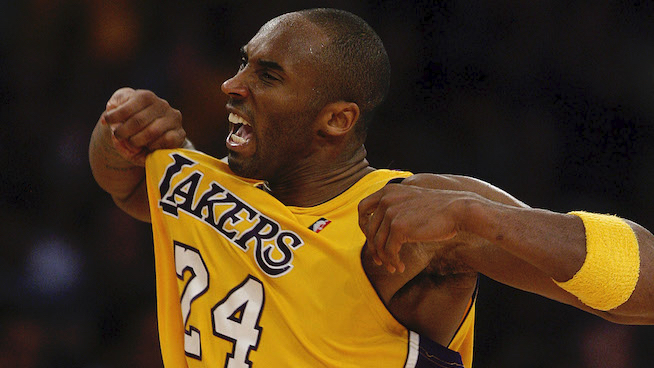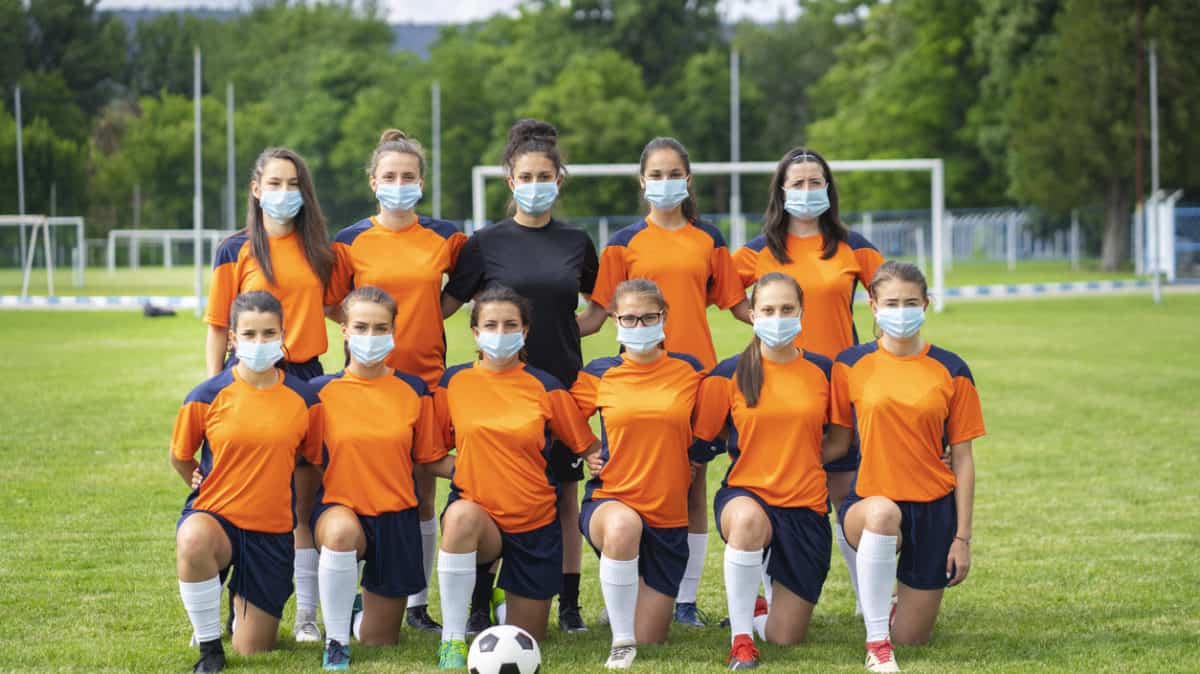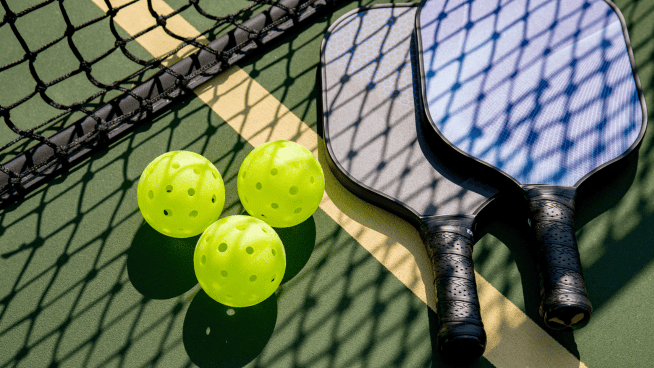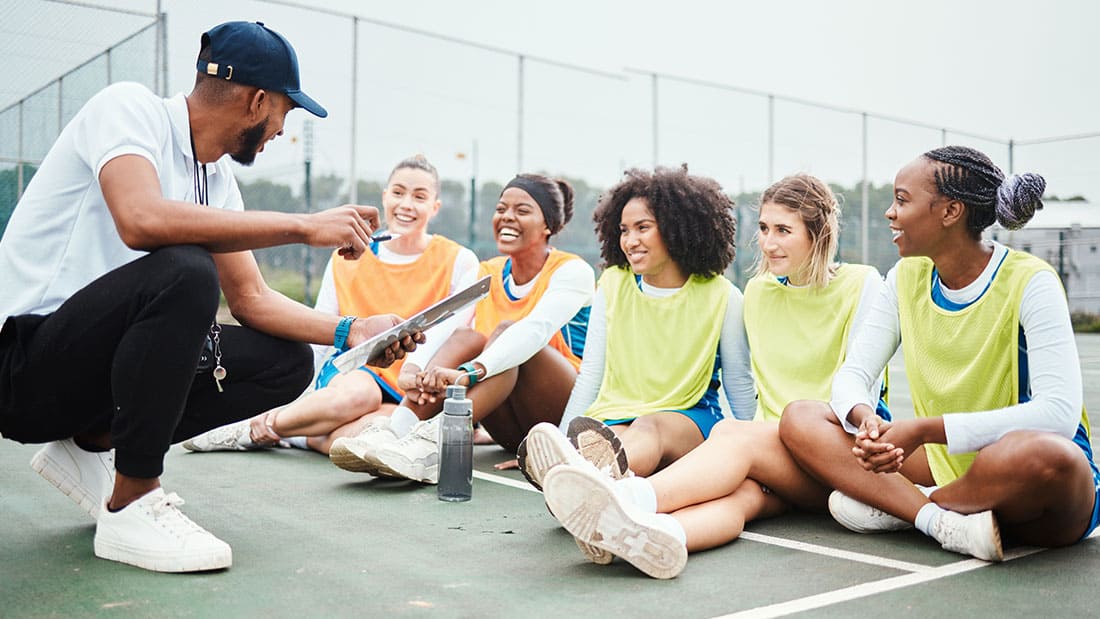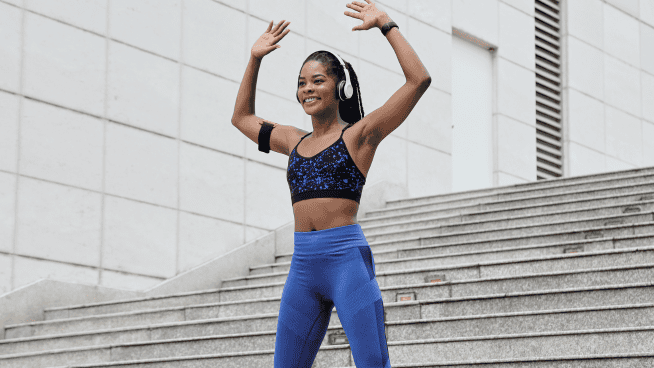Andrew Wiggins, Jadeveon Clowney and a System That Needs Fixing
Andrew Wiggins sat in a chair in the middle of the floor on the University of Kansas practice court, a blue and red Jayhawk uniform draped over his 6’8” frame, his hair styled in what could only be called the “Andrew Bynum in Philadelphia” look. He smiled. Jay Bilas, a basketball analyst for ESPN, sat across from him, a list of questions on a piece of paper resting in his hands.
“What are your goals for this year?” Bilas asked.
“To win a national championship,” Wiggins said. Then he paused. “And follow in Anthony Bennett’s footsteps and go number one.”
Anthony Bennett is, like Wiggins, a native of Canada. An explosive one-year forward out of UNLV, Bennett was selected by the Cleveland Cavaliers with the first overall pick in the 2013 Draft, a move so out of left field it caused Bill Simmons, who was covering the draft for ESPN, to yell “Woah!” like he’d just returned from a Yeezus show.
Southeast of Lawrence, Kan., in Columbia, S.C., University of South Carolina head football coach Steve Spurrier is holding a press conference.
“If he never played another snap here, we all should be thankful and appreciative that he came to South Carolina,” Spurrier says. “None of us need be upset with Jadeveon. None of us.”
Coach is frustrated. His face is flushed as always, having spent countless Saturdays beneath the Carolina sun, but today the culprit responsible for his specific shade of red is South Carolina’s prized possession, Jadeveon Clowney. That name should be familiar to you by now, unless you’ve sworn off television for the past two years. The stud defensive end registered 13 sacks in 2012, including a ridiculous 4.5 in the Gamecocks’ regular-season finale against Clemson. If his name hadn’t reached your ears by then, you couldn’t avoid hearing it after his Richter scale-registering hit on Michigan’s Vincent Brown in the 2013 Outback Bowl. Clowney hit Brown so hard that Brown’s helmet flew off his head like it had a hair phobia. The video went viral, and Jadeveon Clowney, as we knew him, ceased to exist. He became legend, the hit forever a part of South Carolina lore.
Pro league rules that allow teams to skim players off the top of the college talent pool, are misguided. The NBA’s requirement of just one year of college for players with pro basketball dreams has turned universities into athletic flings. College is nothing more than a formality for kids like Wiggins, leaving many to wonder why the NBA makes them go to college at all. The NFL asks that their future athletes spend at least three years in college before turning pro, keeping a player like Clowney, who has nothing left to accomplish in Columbia, on the college field for one more year, during which he is expected to somehow be better than he was the year before.
Before he ever played a game for Kansas, Wiggins, as James Taylor once crooned about Carolina, was gone to the NBA in his mind, and no one so much as batted an eye. A bean stalk of a basketball player with springs in his legs and a spin move so devastating it would make the Tasmanian Devil jealous, Wiggins will probably end up going first overall in next year’s NBA Draft. He won’t be returning to Kansas for his sophomore year, and he’ll trade dining halls and communal bathrooms for millions of dollars and a travel schedule akin to George Clooney’s character in Up in the Air.
Clowney should already be in the NFL. Most likely, he would have been the number 1 pick in the 2013 Draft. His tackle in the Outback Bowl was the icing on the proverbial cake that was his sophomore season. But he was forced to return to school, where’s he currently having a dismal season due to enormous expectations after a 2012 season that now must seem to him like a distant memory.
Clowney has spent his Saturdays being double- and tripled-teamed at the line of scrimmage while opposing offenses run plays to whatever side of the field he isn’t. As one might expect, his stats have suffered. He has registered 33 tackles and just two sacks through 10 games this season.
After a Week 2 loss to Georgia, in which he had just three tackles before leaving with an ankle injury, Clowney let his frustrations spill over in a post-game interview. “I told coach ‘Man, you got to put me somewhere else, in the middle, somewhere where I can make some plays,” he said.
“The Tackle” has followed Clowney like Peter Pan’s shadow. On national television almost every week, with announcers alerting viewers to where he was on the field and what he did on every defensive snap, those who crowned him the year before began proclaiming him a false prophet. When he informed the South Carolina coaching staff just hours before the kickoff that he would not be playing against Kentucky in week five because of a rib injury, things came to a head. The critical whispers became deafening.
“He has no heart. He’s just saving himself for the NFL. Who would want to play with a guy like that?”
This is what led to Spurrier’s press conference, in which he defended Clowney and chastised fans for forgetting how much money—not a dime of which he’ll ever see—the defensive star had brought to the University.
Clowney tried to stand up for himself. “I didn’t sit out. I could have sat out. I am not that type of guy. I am here for the team,” he told a local beat reporter after the Kentucky fiasco. No one seemed to believe him.
Under the lights of New York City’s Madison Square Garden, Andrew Wiggins caught the ball in the post, turned his body toward his defender, jab-stepped then head faked. He took one dribble, stepped back, and nailed a jumper before the man guarding him had a chance to get his hand up. Swish. With a move tailor made for the NBA, Wiggins put Kansas up four over Duke in the waning moments of their early season marquee matchup.
Both Wiggins and Clowney will join the professional ranks next year, but a culture that has given both media and fans a backwards perspective on elite players will remain. Wiggins’s comments should have been criticized, not ignored. To bring that type of mindset into a team locker room, especially at a university with a basketball legacy like Kansas, is unhealthy and disrespectful, especially to the guys on the team fighting to get a few minutes of court time. Clowney’s “disappointing” 2013 should be viewed in context. He should have been long gone to the NFL, where offenses would not have designed much of their playbook specifically to avoid him. Instead, a “what have you done for me lately” culture, as well as a misguided narrative pegging Clowney as someone who would rather save himself for the next level than play, will unfairly hurt his draft stock.
There will be more players like Wiggins and Clowney in the future. We can only hope a system and a culture that have misshaped our opinions will be fixed before athletes no longer see any use for college at all.
RECOMMENDED FOR YOU
MOST POPULAR
Andrew Wiggins, Jadeveon Clowney and a System That Needs Fixing
Andrew Wiggins sat in a chair in the middle of the floor on the University of Kansas practice court, a blue and red Jayhawk uniform draped over his 6’8” frame, his hair styled in what could only be called the “Andrew Bynum in Philadelphia” look. He smiled. Jay Bilas, a basketball analyst for ESPN, sat across from him, a list of questions on a piece of paper resting in his hands.
“What are your goals for this year?” Bilas asked.
“To win a national championship,” Wiggins said. Then he paused. “And follow in Anthony Bennett’s footsteps and go number one.”
Anthony Bennett is, like Wiggins, a native of Canada. An explosive one-year forward out of UNLV, Bennett was selected by the Cleveland Cavaliers with the first overall pick in the 2013 Draft, a move so out of left field it caused Bill Simmons, who was covering the draft for ESPN, to yell “Woah!” like he’d just returned from a Yeezus show.
Southeast of Lawrence, Kan., in Columbia, S.C., University of South Carolina head football coach Steve Spurrier is holding a press conference.
“If he never played another snap here, we all should be thankful and appreciative that he came to South Carolina,” Spurrier says. “None of us need be upset with Jadeveon. None of us.”
Coach is frustrated. His face is flushed as always, having spent countless Saturdays beneath the Carolina sun, but today the culprit responsible for his specific shade of red is South Carolina’s prized possession, Jadeveon Clowney. That name should be familiar to you by now, unless you’ve sworn off television for the past two years. The stud defensive end registered 13 sacks in 2012, including a ridiculous 4.5 in the Gamecocks’ regular-season finale against Clemson. If his name hadn’t reached your ears by then, you couldn’t avoid hearing it after his Richter scale-registering hit on Michigan’s Vincent Brown in the 2013 Outback Bowl. Clowney hit Brown so hard that Brown’s helmet flew off his head like it had a hair phobia. The video went viral, and Jadeveon Clowney, as we knew him, ceased to exist. He became legend, the hit forever a part of South Carolina lore.
Pro league rules that allow teams to skim players off the top of the college talent pool, are misguided. The NBA’s requirement of just one year of college for players with pro basketball dreams has turned universities into athletic flings. College is nothing more than a formality for kids like Wiggins, leaving many to wonder why the NBA makes them go to college at all. The NFL asks that their future athletes spend at least three years in college before turning pro, keeping a player like Clowney, who has nothing left to accomplish in Columbia, on the college field for one more year, during which he is expected to somehow be better than he was the year before.
Before he ever played a game for Kansas, Wiggins, as James Taylor once crooned about Carolina, was gone to the NBA in his mind, and no one so much as batted an eye. A bean stalk of a basketball player with springs in his legs and a spin move so devastating it would make the Tasmanian Devil jealous, Wiggins will probably end up going first overall in next year’s NBA Draft. He won’t be returning to Kansas for his sophomore year, and he’ll trade dining halls and communal bathrooms for millions of dollars and a travel schedule akin to George Clooney’s character in Up in the Air.
Clowney should already be in the NFL. Most likely, he would have been the number 1 pick in the 2013 Draft. His tackle in the Outback Bowl was the icing on the proverbial cake that was his sophomore season. But he was forced to return to school, where’s he currently having a dismal season due to enormous expectations after a 2012 season that now must seem to him like a distant memory.
Clowney has spent his Saturdays being double- and tripled-teamed at the line of scrimmage while opposing offenses run plays to whatever side of the field he isn’t. As one might expect, his stats have suffered. He has registered 33 tackles and just two sacks through 10 games this season.
After a Week 2 loss to Georgia, in which he had just three tackles before leaving with an ankle injury, Clowney let his frustrations spill over in a post-game interview. “I told coach ‘Man, you got to put me somewhere else, in the middle, somewhere where I can make some plays,” he said.
“The Tackle” has followed Clowney like Peter Pan’s shadow. On national television almost every week, with announcers alerting viewers to where he was on the field and what he did on every defensive snap, those who crowned him the year before began proclaiming him a false prophet. When he informed the South Carolina coaching staff just hours before the kickoff that he would not be playing against Kentucky in week five because of a rib injury, things came to a head. The critical whispers became deafening.
“He has no heart. He’s just saving himself for the NFL. Who would want to play with a guy like that?”
This is what led to Spurrier’s press conference, in which he defended Clowney and chastised fans for forgetting how much money—not a dime of which he’ll ever see—the defensive star had brought to the University.
Clowney tried to stand up for himself. “I didn’t sit out. I could have sat out. I am not that type of guy. I am here for the team,” he told a local beat reporter after the Kentucky fiasco. No one seemed to believe him.
Under the lights of New York City’s Madison Square Garden, Andrew Wiggins caught the ball in the post, turned his body toward his defender, jab-stepped then head faked. He took one dribble, stepped back, and nailed a jumper before the man guarding him had a chance to get his hand up. Swish. With a move tailor made for the NBA, Wiggins put Kansas up four over Duke in the waning moments of their early season marquee matchup.
Both Wiggins and Clowney will join the professional ranks next year, but a culture that has given both media and fans a backwards perspective on elite players will remain. Wiggins’s comments should have been criticized, not ignored. To bring that type of mindset into a team locker room, especially at a university with a basketball legacy like Kansas, is unhealthy and disrespectful, especially to the guys on the team fighting to get a few minutes of court time. Clowney’s “disappointing” 2013 should be viewed in context. He should have been long gone to the NFL, where offenses would not have designed much of their playbook specifically to avoid him. Instead, a “what have you done for me lately” culture, as well as a misguided narrative pegging Clowney as someone who would rather save himself for the next level than play, will unfairly hurt his draft stock.
There will be more players like Wiggins and Clowney in the future. We can only hope a system and a culture that have misshaped our opinions will be fixed before athletes no longer see any use for college at all.




